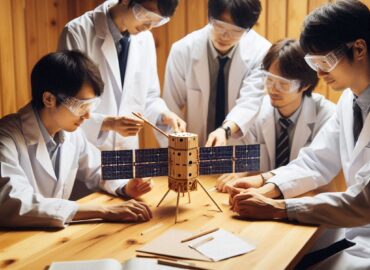Mechanical engineering, often hailed as the backbone of modern technology, encompasses a universe of innovation, precision, and impact. In this comprehensive exploration, we delve deep into the intricate world of mechanical engineering, unraveling its multifaceted applications, groundbreaking innovations, and enduring legacy. Join us on a journey shaping the Future through the realms of automotive engineering, aerospace marvels, biomechanical wonders, sustainable energy solutions, manufacturing revolutions, and beyond, as we unravel the essence of mechanical engineering.
Historical Evolution of Mechanical Engineering
The roots of mechanical engineering can be traced back to ancient civilizations, where rudimentary machines and mechanisms were developed to address basic human needs. From the invention of the wheel and lever to the construction of complex waterwheels and gears, early engineers laid the foundation for modern mechanical engineering principles.
During the Industrial Revolution, mechanical engineering emerged as a distinct discipline, fueled by advancements in manufacturing processes, steam power, and machine tools. Visionary engineers such as James Watt, Isambard Kingdom Brunel, and Nikola Tesla ushered in an era of unprecedented innovation, revolutionizing transportation, communication, and industry.
In the 20th century, the advent of computers and automation transformed the field of mechanical engineering, enabling engineers to design and analyze complex systems with unparalleled precision. From the Manhattan Project to the Apollo moon landing, mechanical engineers played a pivotal role in some of the greatest technological achievements of the modern era.
The Foundations of Mechanical Engineering
Mechanical engineering serves as the cornerstone of numerous industries, drawing upon the principles of physics, mathematics, and materials science. At its core lies the art of translating theoretical concepts into tangible solutions, whether it’s designing efficient engines, optimizing complex machinery, or ensuring structural integrity in construction projects. The fundamental pillars of mechanics, thermodynamics, fluid dynamics, and control theory form the bedrock upon which mechanical engineers build innovative solutions to real-world problems.
Exploring Diverse Applications
The breadth of mechanical engineering applications is awe-inspiring, spanning across a myriad of industries and domains. Automotive engineering showcases the relentless pursuit of efficiency and performance, with engineers pushing the boundaries of combustion engines, electric vehicles, and autonomous driving technologies. Aerospace engineering takes us to the skies and beyond, with mechanical engineers spearheading the development of aircraft, spacecraft, and satellite systems, enabling human exploration of the cosmos.
In the realm of biomechanics, mechanical engineers collaborate with medical professionals to design prosthetics, implants, and rehabilitation devices that restore mobility and improve quality of life. Energy systems engineering confronts the pressing challenges of climate change, as mechanical engineers innovate renewable energy technologies, optimize energy storage solutions, and enhance energy efficiency in all sectors of society. Manufacturing engineering revolutionizes production processes, leveraging advanced robotics, additive manufacturing, and digital technologies to streamline workflows and enhance product quality.
Applications of Mechanical Engineering
The applications of mechanical engineering are as diverse as they are impactful, spanning across a myriad of industries and domains.
Automotive Engineering: In the automotive industry, mechanical engineers design and optimize engines, transmissions, and chassis systems to improve performance, efficiency, and safety. They also play a key role in the development of electric and autonomous vehicles, paving the way for the future of transportation.
Aerospace Engineering: Aerospace engineering pushes the boundaries of human exploration, with mechanical engineers designing aircraft, spacecraft, and propulsion systems capable of traveling to the far reaches of space. From the Wright brothers’ first flight to the Mars rovers, mechanical engineers have been instrumental in shaping the history of aviation and space exploration.
Biomedical Engineering: In the field of biomedical engineering, mechanical engineers collaborate with medical professionals to design medical devices, implants, and prosthetics that improve the quality of life for patients. From artificial hearts to bionic limbs, mechanical engineers harness technology to overcome physical limitations and restore functionality to the human body.
Energy Systems Engineering: As the world faces the challenges of climate change and energy sustainability, mechanical engineers are at the forefront of developing renewable energy technologies such as solar panels, wind turbines, and fuel cells. They also work to improve the efficiency of traditional energy systems, optimize energy storage solutions, and reduce environmental impact through innovative engineering solutions.
Manufacturing Engineering: Manufacturing engineering focuses on optimizing production processes to enhance efficiency, quality, and cost-effectiveness. Mechanical engineers develop advanced manufacturing techniques such as additive manufacturing (3D printing), robotics, and automation to streamline workflows and bring products to market faster.
Emerging Trends and Technologies
The field of mechanical engineering is constantly evolving, driven by emerging trends and technologies that push the boundaries of what is possible.
Additive Manufacturing: Additive manufacturing, also known as 3D printing, has revolutionized the way products are designed and manufactured. Mechanical engineers leverage this technology to create complex geometries, reduce waste, and enable rapid prototyping across a wide range of industries.
Robotics and Automation: Robotics and automation technologies are transforming industries ranging from manufacturing and healthcare to agriculture and transportation. Mechanical engineers design and develop robotic systems capable of performing tasks that are dangerous, dull, or dirty, freeing up human workers to focus on more complex and creative endeavors.
Artificial Intelligence and Machine Learning: Artificial intelligence (AI) and machine learning algorithms are increasingly being integrated into mechanical engineering systems to improve efficiency, optimize performance, and enable autonomous decision-making. From predictive maintenance in manufacturing plants to self-driving cars on the roads, AI is reshaping the future of mechanical engineering.
Advanced Materials: Advances in materials science are opening up new possibilities for mechanical engineering applications. From lightweight composites and high-strength alloys to shape-memory materials and self-healing polymers, these advanced materials enable engineers to design innovative products with enhanced performance and durability.
Sustainable Engineering: With growing concerns about environmental sustainability, mechanical engineers are leading the charge in developing sustainable engineering solutions. From green building design and renewable energy systems to waste reduction and recycling initiatives, mechanical engineers are driving innovation in sustainable engineering practices.
The Intersection of Mechanical Engineering and Art
The intersection of mechanical engineering and art represents a fusion of creativity and technical expertise, giving rise to breathtaking works of engineering marvels that captivate the imagination. From kinetic sculptures and interactive installations to architectural wonders and avant-garde designs, mechanical engineers collaborate with artists to push the boundaries of what is possible.
Artistic expression often inspires engineers to explore new materials, fabrication techniques, and design concepts, while engineering principles provide the structural integrity and functional efficiency needed to bring artistic visions to life. The result is a harmonious blend of form and function that transcends traditional boundaries and ignites the imagination.
Challenges and Opportunities
Despite the remarkable progress made in the field of mechanical engineering, significant challenges remain on the horizon.
Climate Change and Environmental Sustainability: The impact of climate change poses a significant threat to human society and the natural environment. Mechanical engineers must continue to develop innovative solutions to reduce greenhouse gas emissions, mitigate the effects of climate change, and promote environmental sustainability.
Globalization and Technological Disruption: Globalization and technological disruption are reshaping the landscape of the global economy, creating both opportunities and challenges for mechanical engineers. Automation and artificial intelligence have the potential to transform industries and create new job opportunities, but they also raise concerns about job displacement and economic inequality.
Ethical Considerations: As technology becomes increasingly integrated into every aspect of our lives, ethical considerations become paramount. Mechanical engineers must grapple with questions of safety, privacy, and societal impact as they develop new technologies and systems.
Workforce Development: The rapidly evolving nature of technology requires a skilled and adaptable workforce. Mechanical engineers must continually update their skills and knowledge to stay abreast of the latest developments in the field.
As the global community grapples with the urgent need for environmental sustainability, mechanical engineers are at the forefront of developing innovative solutions to address pressing challenges such as climate change, resource depletion, and pollution. Sustainable engineering principles guide the design, implementation, and management of engineering projects with the goal of minimizing environmental impact and maximizing social benefit.
However, sustainable engineering is not without its challenges. Balancing economic viability, environmental stewardship, and social equity requires a holistic approach that considers the interconnectedness of human and natural systems. Furthermore, the transition to a sustainable future requires collaboration across disciplines, industries, and geographic boundaries, as well as a commitment to lifelong learning and continuous improvement.
Furthermore, interdisciplinary collaboration and cross-functional teamwork are becoming increasingly important in the field of mechanical engineering. Engineers must be able to communicate effectively across disciplines, collaborate with colleagues from diverse backgrounds, and integrate knowledge from multiple fields to solve complex problems and drive innovation.
Innovations Shaping the Future
The relentless pursuit of innovation drives the evolution of mechanical engineering, leading to transformative breakthroughs that shape the future of technology. Additive manufacturing, epitomized by 3D printing, revolutionizes prototyping, customization, and small-scale production, unlocking new frontiers in design freedom and manufacturing efficiency. Robotics and artificial intelligence (AI) herald the era of intelligent machines, empowering automation, autonomy, and human-robot collaboration across industries.
Nanotechnology, at the forefront of materials science, enables the creation of novel materials and devices with unprecedented properties, revolutionizing electronics, healthcare, and environmental remediation. Renewable energy technologies, fueled by advancements in solar, wind, and hydropower, promise a sustainable future powered by clean, abundant energy sources. Quantum computing and quantum mechanics open new horizons in computational power, promising breakthroughs in cryptography, optimization, and simulation.
Entrepreneurship and Innovation
Entrepreneurship and innovation are driving forces in the field of mechanical engineering, fueling the creation of startups, spin-offs, and disruptive technologies that reshape industries and transform economies. Engineers-turned-entrepreneurs leverage their technical expertise and problem-solving skills to identify market opportunities, develop innovative solutions, and bring new products and services to market.
The rise of maker culture and open-source hardware has democratized access to engineering tools and resources, empowering individuals and small teams to innovate and collaborate on projects with global impact. Crowdfunding platforms, incubators, and accelerators provide support and funding to aspiring entrepreneurs, helping them navigate the challenges of starting and scaling a new venture.
From renewable energy startups to advanced manufacturing companies, mechanical engineering entrepreneurs are driving innovation across a wide range of industries, creating jobs, and driving economic growth in the process. By fostering a culture of entrepreneurship and innovation, mechanical engineers can unlock new opportunities and drive positive change in society.
The Future of Mechanical Engineering
As we peer into the future of mechanical engineering, we see a landscape defined by innovation, collaboration, and sustainability. Emerging technologies such as artificial intelligence, advanced materials, and quantum computing promise to revolutionize the field, opening up new frontiers for exploration and discovery.
Innovations in renewable energy, transportation, healthcare, and manufacturing will continue to drive progress and improve quality of life for people around the world. However, the challenges facing humanity – from climate change and resource scarcity to inequality and geopolitical instability – will require bold and creative solutions that leverage the full potential of mechanical engineering.
In this ever-changing world, mechanical engineers will play a central role in shaping the future, driving innovation, advancing knowledge, and inspiring future generations to tackle the most pressing challenges of our time. With their expertise, ingenuity, and commitment to excellence, mechanical engineers will continue to push the boundaries of what is possible, forging a path towards a brighter, more sustainable future for all.
The Role of Women in Mechanical Engineering
While the field of mechanical engineering has traditionally been male-dominated, there is a growing recognition of the importance of diversity and inclusion in the engineering workforce. Women are making significant strides in mechanical engineering, breaking down barriers and challenging stereotypes in pursuit of their passion for innovation and problem-solving.
Initiatives such as mentorship programs, outreach efforts, and scholarships aim to attract and retain more women in the field of mechanical engineering. By creating a supportive and inclusive environment, mechanical engineering departments can harness the diverse perspectives and talents of women engineers to drive innovation and excellence in the field.
The Pursuit of Precision
Precision is the hallmark of mechanical engineering, guiding every aspect of the design, analysis, and manufacturing process. From microscale electronics to macroscopic infrastructure, mechanical engineers strive for perfection in every detail, ensuring reliability, efficiency, and safety. Advanced simulation and modeling techniques enable engineers to predict and optimize the performance of complex systems, reducing time-to-market and minimizing development costs.
Metrology, the science of measurement, plays a pivotal role in ensuring the accuracy and repeatability of manufactured components, with cutting-edge metrology tools enabling nanoscale precision in manufacturing processes. Quality control methodologies such as Six Sigma and statistical process control (SPC) empower engineers to monitor and improve manufacturing processes, driving continuous improvement and customer satisfaction.
Education, Research, and Beyond
Education and research are the lifeblood of mechanical engineering, nurturing the next generation of engineers and driving innovation at the forefront of science and technology. Mechanical engineering programs provide students with a rigorous foundation in fundamental principles, coupled with hands-on laboratory experiences and real-world design projects. Interdisciplinary collaboration, both within academia and industry, fosters innovation and cross-pollination of ideas, leading to breakthroughs that transcend traditional boundaries.
Research in mechanical engineering spans a vast array of topics, from fundamental studies of materials and mechanics to applied research in renewable energy, robotics, and biomedical engineering. Through experimentation, simulation, and theoretical analysis, researchers push the boundaries of knowledge and explore new frontiers in technology. Beyond academia, mechanical engineers play an active role in professional societies, industry associations, and community outreach programs, sharing their expertise and inspiring future generations to pursue careers in engineering.
Global Impact and Social Responsibility
Mechanical engineering extends beyond technological innovation; it carries a profound social responsibility to address global challenges and improve quality of life for all. Engineers are increasingly called upon to design solutions that not only enhance efficiency and productivity but also promote social equity, environmental stewardship, and economic development.
In developing regions, mechanical engineers play a crucial role in designing appropriate technology solutions that address basic human needs such as clean water, sanitation, and energy access. By leveraging their technical expertise and cultural sensitivity, engineers can empower communities to improve their standard of living and build resilience against environmental and economic shocks.
Furthermore, the ethical implications of engineering decisions cannot be overlooked. Engineers must consider the potential social, environmental, and economic impacts of their work and strive to mitigate harm while maximizing benefits for society as a whole. By adopting a holistic approach to engineering practice that integrates ethical considerations, mechanical engineers can contribute to a more just and sustainable world.
Conclusion
Mechanical engineering stands as a testament to human ingenuity and creativity, shaping the world in which we live and pushing the boundaries of what is possible. From the marvels of modern transportation to the intricacies of biomedical devices, mechanical engineers touch every aspect of our lives, driving innovation and progress for the betterment of society. As we embark on the next chapter of technological evolution, the principles of mechanical engineering will continue to guide us towards a future of limitless possibilities.
In this journey through the essence of mechanical engineering, we’ve witnessed the convergence of science, technology, and human endeavor, culminating in a discipline that transcends the boundaries of imagination. As we look towards the horizon, let us embrace the challenges and opportunities that lie ahead, knowing that the spirit of innovation and the pursuit of excellence will continue to propel us towards a brighter future, powered by the timeless principles of mechanical engineering.
for further more:




